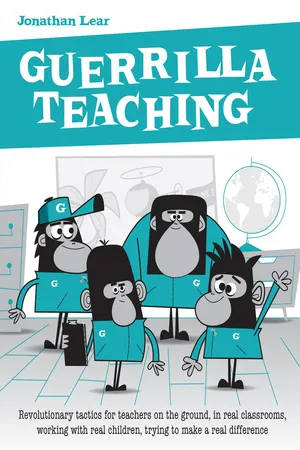
Guerrilla Teaching
Revolutionary tactics for teachers on the ground, in real classrooms, working with real children, trying to make a real difference
- 216 pages
- English
- ePUB (mobile friendly)
- Available on iOS & Android
Guerrilla Teaching
Revolutionary tactics for teachers on the ground, in real classrooms, working with real children, trying to make a real difference
About this book
Guerrilla Teaching is a revolution. Not a flag-waving, drum-beating revolution, but an underground revolution, a classroom revolution. It's not about changing policy or influencing government; it's about doing what you know to be right, regardless of what you're told. It's sound advice for people on the ground: people in real classrooms, working with real children, trying to make a real difference. Jonathan Lear's new book, Guerrilla Teaching, is packed with ideas to refresh teaching practice - combining direct teaching with creative child-led learning - and forge cross-curricular links to create engaging, motivating and fun learning experiences. Ultimately, Guerrilla Teaching is about making a difference. It's a book Jonathan Lear never meant to write, but it was just too important not to. Guerrilla: to be a member of an unofficial group of combatants using the element of surprise to harass a larger less mobile target. Guerrilla teaching: To put children, and their learning, at the heart of lessons. To embrace problem-solving and risk-taking in the classroom. To be adaptable and creative. To think about the skills and knowledge children will need in the future. To stand up and make sure children get the education they deserve (even if it means subverting the system!). Filled with thoughts, ideas and strategies that will help to develop creativity and creative thinking in the primary classroom, Guerrilla Teaching is for trainee teachers, new teachers, teaching assistants, experienced teachers and head teachers - there's something for everyone!
Frequently asked questions
- Essential is ideal for learners and professionals who enjoy exploring a wide range of subjects. Access the Essential Library with 800,000+ trusted titles and best-sellers across business, personal growth, and the humanities. Includes unlimited reading time and Standard Read Aloud voice.
- Complete: Perfect for advanced learners and researchers needing full, unrestricted access. Unlock 1.4M+ books across hundreds of subjects, including academic and specialized titles. The Complete Plan also includes advanced features like Premium Read Aloud and Research Assistant.
Please note we cannot support devices running on iOS 13 and Android 7 or earlier. Learn more about using the app.
Information
Starting a Revolution
REVOLUTIONARY MOVEMENTS
Thinkers, schemers and leaders
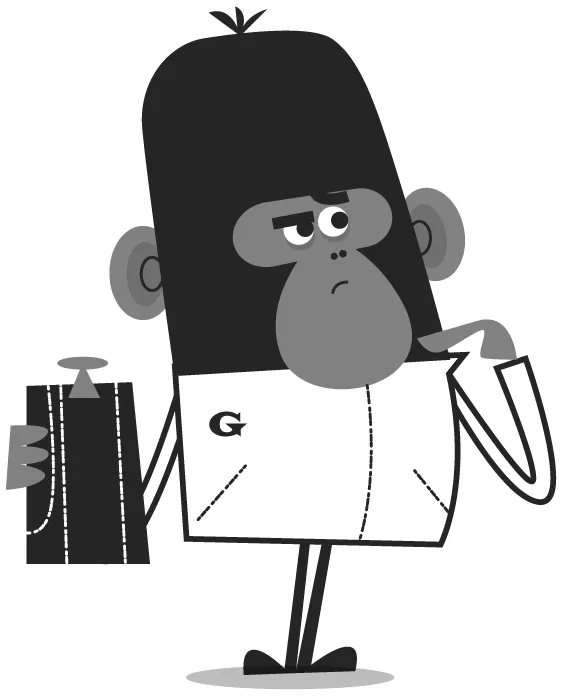
Militants, rabble-rousers and rule-breakers

Oddballs, mavericks and crackpots
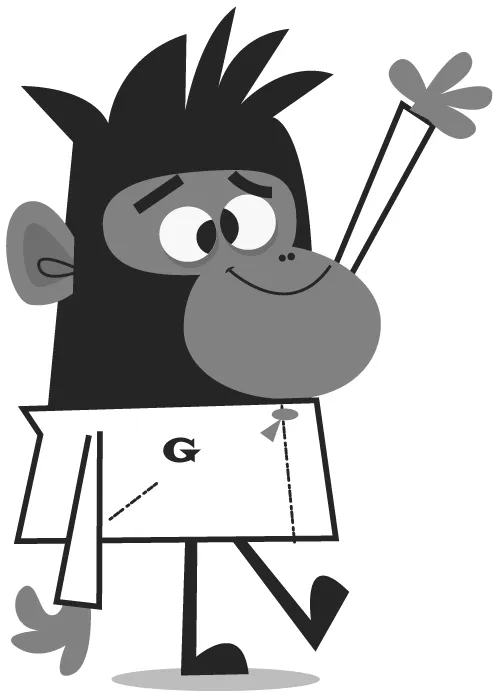
Charmers, chancers and dreamers


There ain’t no ‘I’ in team
guerrilla-warfare-history-essay.php. All the elements of the phrase are there but it’s not a direct quote.
TURN LEFT FOR BOATS, TRAINS, ELEPHANTS, FISH AND CASTLES
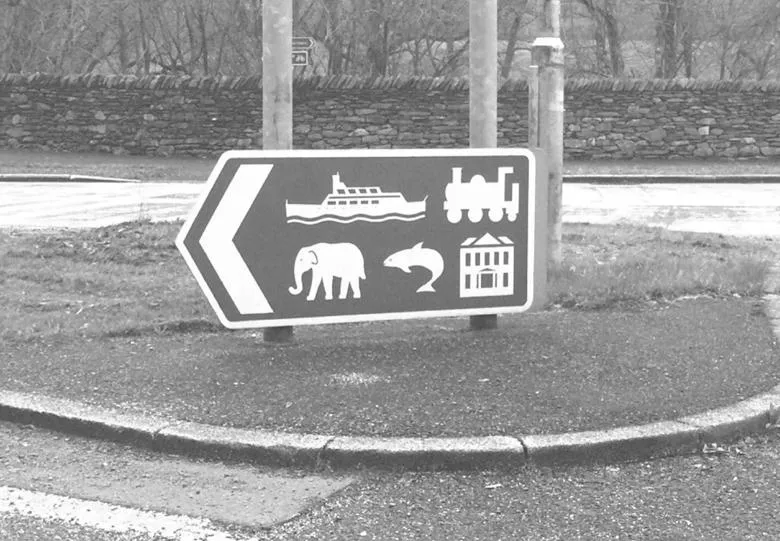
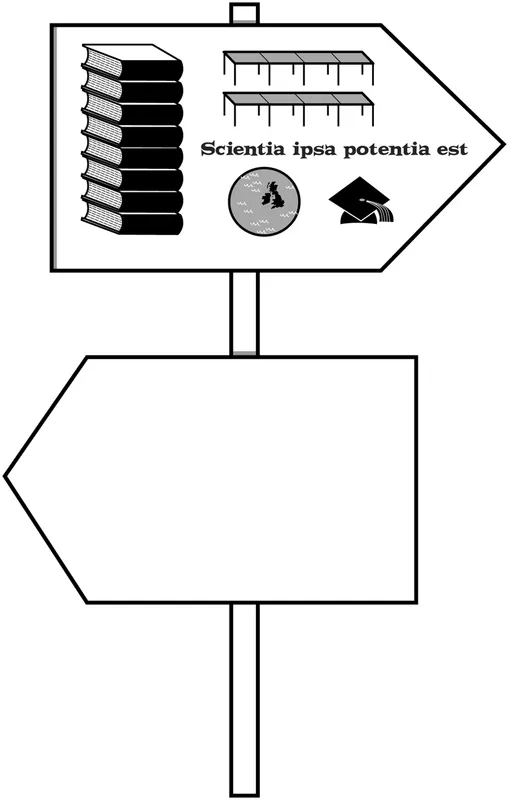
Table of contents
- Cover
- Praise
- Title Page
- Dedication
- Toscanini and the Low-Budget Movie: A Foreword by Will Ryan
- Acknowledgements
- Contents
- Introduction
- Part I: Starting a Revolution
- Part II: Guerrilla HQ
- Part III: Ongoing Strategy
- Bibliography
- Index
- Index of strategies
- Copyright